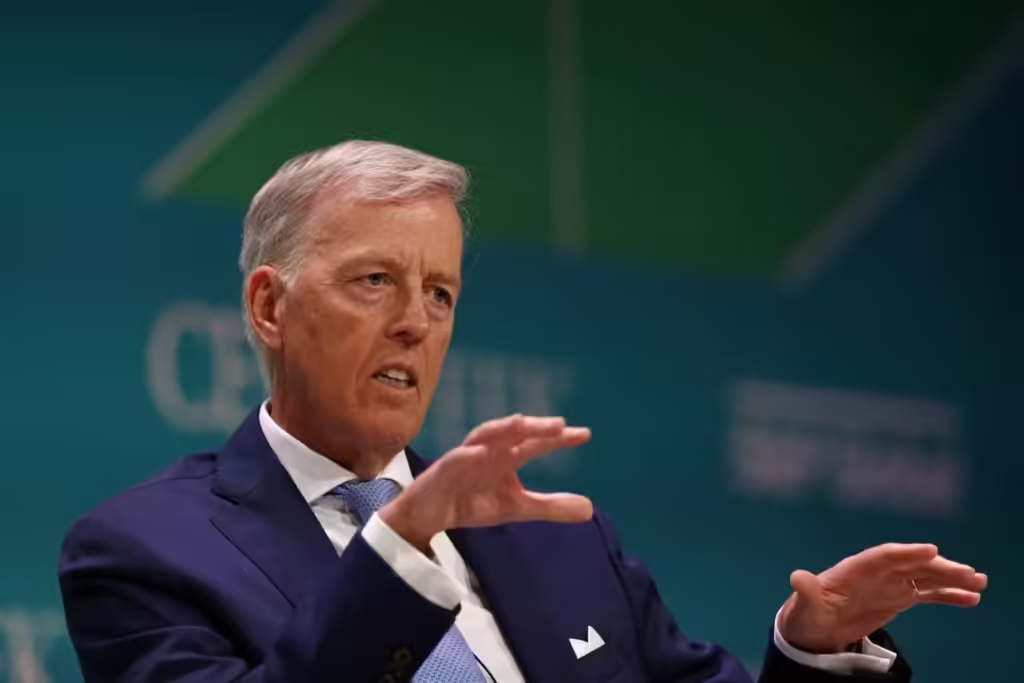Marcel van Poecke became part of Carlyle in 2013, tasked with managing the US private equity firm’s newly established energy fund. His first significant move was acquiring his family office’s stake in a Swiss oil refinery.
Building Carlyle International Energy Partners
Over the past decade, the seasoned Dutch investor has transformed London-based Carlyle International Energy Partners (CIEP) into a distinctive entity within the buyout sector, focusing on acquiring underappreciated oil and gas assets across Europe, Africa, Asia, and Latin America.

Investing in Fossil Fuels Despite Climate Concerns
Unlike major private equity firms like Blackstone and Apollo, which have retreated from fossil fuel investments due to climate concerns, van Poecke and CIEP have remained active.
They argue that it’s more effective to invest in reducing emissions from existing oil and gas operations than to divest from them entirely.
CIEP’s Latest Acquisition
CIEP recently announced its 15th investment, a $945 million deal for a portfolio of oil and gas projects in Italy, Egypt, and Croatia. This will establish a new Mediterranean-focused producer, chaired by former BP CEO Tony Hayward.
While other Carlyle funds focus on renewable energy, and some of CIEP’s portfolio companies explore clean energy technologies like hydrogen and biofuels, van Poecke and Starr emphasize the need for responsible investment in fossil fuels as they remain part of the energy mix.
Strong Performance of CIEP Funds
CIEP’s second energy fund, raised in 2019 with $2.3 billion, has achieved a 1.7x multiple on invested capital and a 13% net annual return, outperforming many contemporaneous private equity funds.
The first fund, raised in 2013 with $2.5 billion, has a 1.9x multiple and a 9% net annual return.
CIEP-backed Varo’s CEO, Dev Sanyal, highlighted Carlyle’s invaluable “patient capital,” expertise, and extensive network. “They have a Rolodex like no other,” he noted.
Van Poecke’s Successful Track Record
Van Poecke, a prominent figure in Europe’s energy sector, co-founded Swiss oil refiner Petroplus in 1993. After selling it in 2005 to Carlyle and Riverstone, he continued to lead it for two more years before setting up his family office, AtlasInvest.
Since joining Carlyle, van Poecke has led numerous strategic acquisitions outside the US, such as a Romanian oil and gas business, onshore oilfields in Gabon and Colombia, and stakes in projects from Engie across Europe, North Africa, and Southeast Asia. In 2019, CIEP acquired 37% of Spanish oil and gas company Cepsa from Mubadala.
Adapting to Market Shifts
By the early 2020s, as investor scrutiny of private equity’s carbon emissions intensified, many firms divested from carbon assets. However, Carlyle chose to retain its energy investments, committing to reducing emissions in line with the Paris climate agreement.
Despite internal company changes, Carlyle’s energy investments continued to yield strong returns, bolstered by rising oil and gas prices due to geopolitical events. In 2022, Carlyle’s infrastructure and natural resources portfolio saw significant gains, largely driven by energy investments.
CIEP’s Strategic Direction
Van Poecke, now Carlyle’s chair of energy, continues to guide CIEP, managed by Bob Maguire and Guido Funes Nova. Megan Starr, Carlyle’s head of ESG, has played a key role in shaping responsible investment strategies for traditional energy assets.
Carlyle’s strategy involves setting stringent emission reduction targets and establishing ESG committees for its portfolio companies. This approach aims to increase the value of these companies by making them more sustainable.
Ambitious Projects and Transformations
One of CIEP’s most ambitious projects is with Cepsa, where CEO Maarten Wetselaar aims to transition the company to generate over 50% of earnings from low-carbon businesses within six years.
This rapid transformation is facilitated by private ownership, allowing for more dynamic changes compared to publicly traded companies.
Navigating Investor Expectations
Both Shell and BP have recently scaled back their energy transition plans due to insufficient shareholder support, highlighting the challenges faced by publicly traded companies in balancing fossil fuel and renewable investments.